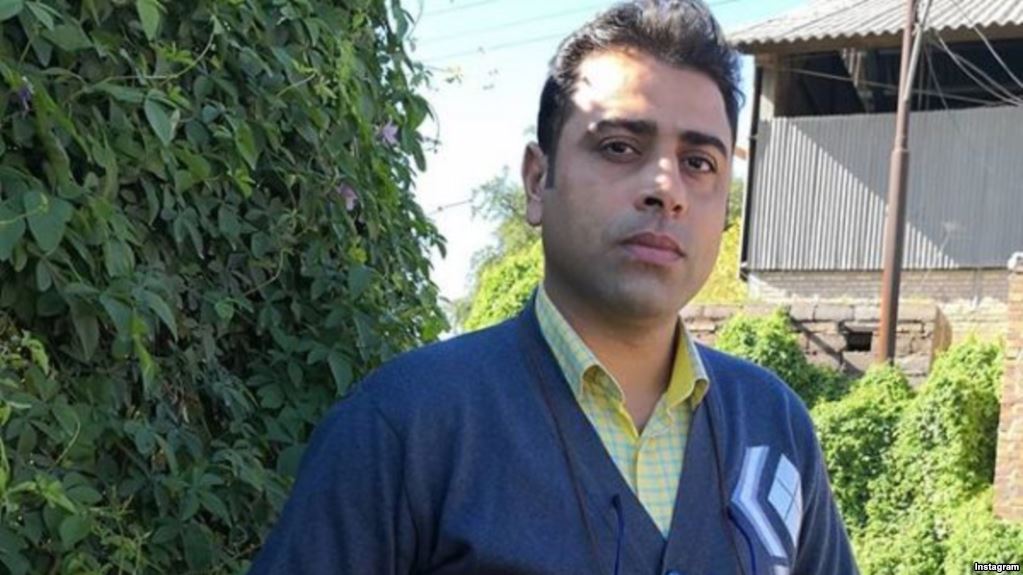
A day after the Iranian Parliament announced it would investigate claims of torture by a labor activist following strikes at the Haft Tapeh Sugar Cane industrial complex, judiciary head Sadeq Amoli Larijani said he has called for an independent body to look into the allegations.
Addressing the judiciary’s top officials on January 7, Amoli Larijani said the committee would be sent to the city of Shush, located in the oil-rich province of Khuzestan and home to the industrial complex.
Responding to allegations by Esmail Bakhshi, the spokesman for the sugar cane plant’s workers’ union, Amoli Larijani said such matters are “utterly important” because torturing detainees is against both the law and Shari’a.
Amoli Larijani insisted that torture has never been condoned in Iran since the establishment of the Islamic Republic.
Numerous reports by international human rights organizations and the U.N. special rapporteurs have documented torture and abuse of prisoners in Iran.
Without naming Bakhshi, who claims to have been brutally tortured behind bars, Amoli Larijani said, “A worker might have violated the law, but treating him unlawfully is unacceptable.”
A day after the Iranian Parliament announced it would investigate claims of torture by a labor activist following strikes at the Haft Tapeh Sugar Cane industrial complex, judiciary head Sadeq Amoli Larijani said he has called for an independent body to look into the allegations.
Addressing the judiciary’s top officials on January 7, Amoli Larijani said the committee would be sent to the city of Shush, located in the oil-rich province of Khuzestan and home to the industrial complex.
Responding to allegations by Esmail Bakhshi, the spokesman for the sugar cane plant’s workers’ union, Amoli Larijani said such matters are “utterly important” because torturing detainees is against both the law and Shari’a.
Amoli Larijani insisted that torture has never been condoned in Iran since the establishment of the Islamic Republic.
Numerous reports by international human rights organizations and the U.N. special rapporteurs have documented torture and abuse of prisoners in Iran.
Without naming Bakhshi, who claims to have been brutally tortured behind bars, Amoli Larijani said, “A worker might have violated the law, but treating him unlawfully is unacceptable.”
“Weeks after my release, I still feel intolerable pain in my broken ribs, left ear, and testicles,” he added.
The labor activist also said that he and Qolian were bombarded with abusive sexual language.
“The torturers, who presented themselves as the unknown soldiers of [the Shi’ite] Hidden Imam (the title exclusively used for the agents and moles hired by the Intelligence Ministry), used to shower us with vituperative sexual terms while beating us up.”
The allegations triggered widespread criticism of the Iranian ruling establishment to the extent that Bakhshi’s case was discussed at a session of parliament’s influential Commission for National Security and Foreign Policy.
Chairman Heshmatollah Falahatpisheh said the events at the Haft Tapeh Sugar Cane plant were scheduled to be discussed with related authorities on January 8.
Furthermore, the outspoken representative of Tehran to the parliament and deputy speaker, Ali Motahari, asked the intelligence minister to give a convincing response to Bakhshi’s complaint.
“If what Bakhshi is saying is true, it means there are still elements within the ministry that believe they can use any means against inmates. This is a shameful record for an administration that took office with the slogan of hope, freedom, and defending human rights,” he said.
Iranian law enforcement and judicial authorities often do not release accurate information about detainees, especially in civil rights and political cases. There are few mechanisms to hold these authorities accountable in Iran.
Bakhshi’s lawyer, Farzaneh Zilabi, has disclosed that her client has faced heavy pressure to retract his statement.












 Posted in
Posted in 











